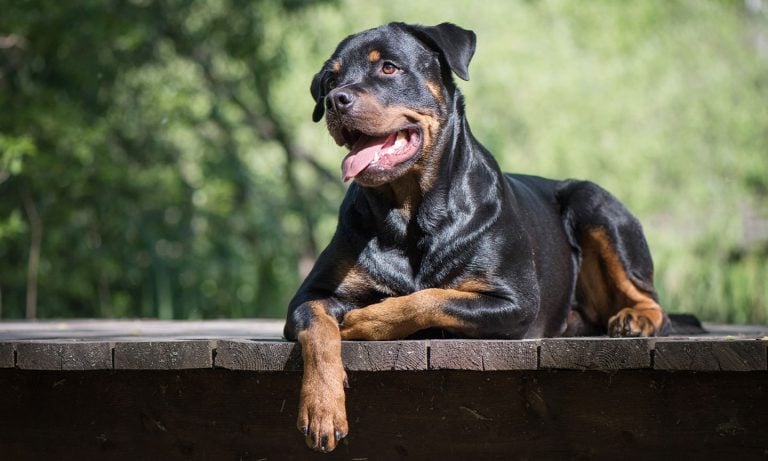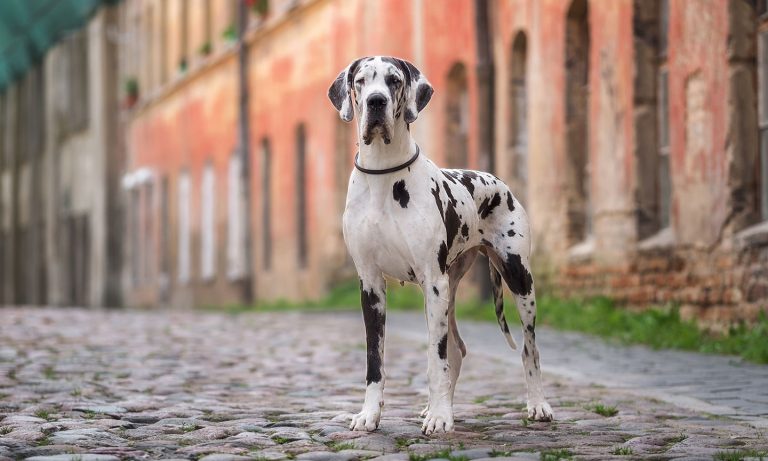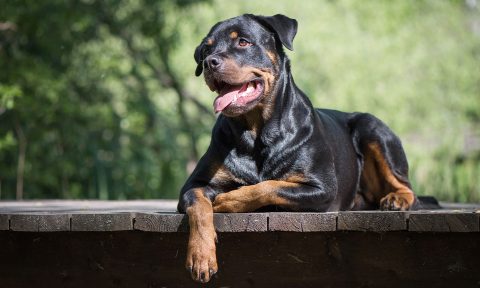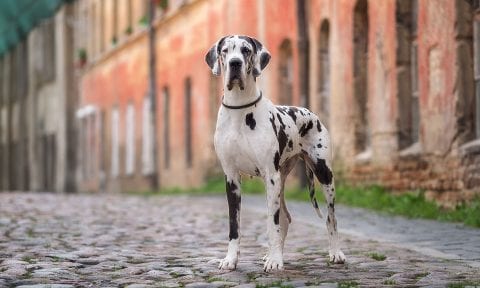Rottweiler vs Great Dane

Breed Snapshot
Best For
A popular working breed, Rottweilers do best with experienced pet parents who can provide early training and socialization. These robust, large-sized dogs thrive in homes with active individuals or families, appreciating both mental and physical...
A popular working breed, Rottweilers do best with experienced pet parents who can provide early training and socialization. These robust, large-sized dogs thrive in homes with active individuals or families, appreciating both mental and physical challenges.
Rottweiler Temperament
Rottweilers are powerful and intelligent dogs who benefit from early training and socialization. They are easy to train and eager to please their families, but are also strong-willed and may seem aloof to the outside world. Originally descending from the mastiffs of the Roman legions, Rottweilers have been valuable...
Rottweilers are powerful and intelligent dogs who benefit from early training and socialization. They are easy to train and eager to please their families, but are also strong-willed and may seem aloof to the outside world.
Originally descending from the mastiffs of the Roman legions, Rottweilers have been valuable companion animals and working dogs for centuries. This is just as true today as it was years ago—families that are willing to put in the time to train and socialize their Rottweiler will be rewarded with an intensely loyal and energetic dog.
In fact, Rottweilers are much more emotionally needy than many people assume. This dog has a fearsome reputation, but in reality, Rottweilers are obsessed with their people and want to be around them all the time. Rottweilers who are isolated from people or kept alone may begin to exhibit unwanted behaviors when they do finally get access to people.
Rottweilers were originally bred to be protectors. Combined with their great strength, this makes it especially important that Rottweilers are properly trained and socialized. Once socialized, Rottweilers can easily get along with other dogs and young children. Like any dog, Rottweilers who are poorly trained, subjected to harsh discipline, or isolated are more likely to exhibit unwanted fear-based behaviors, including biting and aggression.
One especially interesting features of these dogs is their vocalization. Rottweilers aren’t known for excessive barking (although of course they can and will bark), but they do have a deep rumble that sounds almost like a growl. Some pet parents think of this rumbling sound as “talking.” This “Rottie rumbling” is almost like the purring of a giant cat and often means your Rottweiler is happy and content, particularly during belly rubs.
Rottweiler Traits

Breed Snapshot
Best For
Great Danes are regal, gentle giants with a calm temperament and moderate exercise needs. They make wonderful family companions, and the amount of love they have to give is as big as they are. They're...
Great Danes are regal, gentle giants with a calm temperament and moderate exercise needs. They make wonderful family companions, and the amount of love they have to give is as big as they are. They're ideal for pet parents seeking pet who's as affectionate as they are, well, huge.
Great Dane Temperament
Don’t be fooled by the breed’s large size and assume this dog has an intimidating personality to match. Great Danes are, in fact, loyal and kind with happy personalities and they desire to always be near their people. Great Danes prefer to keep you in their line of...
Don’t be fooled by the breed’s large size and assume this dog has an intimidating personality to match. Great Danes are, in fact, loyal and kind with happy personalities and they desire to always be near their people. Great Danes prefer to keep you in their line of sight, and you can forget about eating alone or cooking a meal by yourself ever again!
Great Danes can sometimes come off as shy, aloof or reserved. Socializing your Great Dane puppy at an early age will help them become more comfortable around new people and other dogs. They have a deep, powerful bark that can be intimidating to visitors, but this is a case where the bark is really worse than the bite.
The Great Dane was originally bred to be a hunting dog. Today, they mainly fill the role of “lovable family member.” And don’t be surprised if your Great Dane attempts to be a lap dog—the results can be hilarious.




